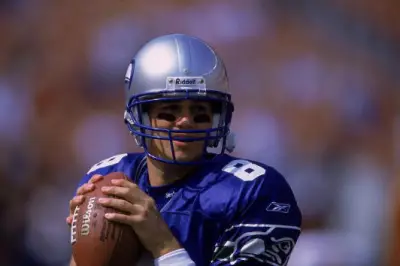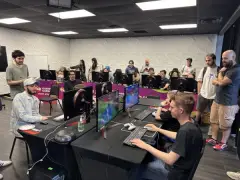Boston University CTE Center researchers trying to diagnose CTE during life, recruiting former football players

Local researchers are hoping they can tackle the mystery of how to diagnose CTE in the living The Boston University CTE Center and other research centers have received a million NIH grant to diagnose CTE during life as the scientists recruit hundreds of former football players for the new review Former NFL quarterback Matt Hasselbeck is among the first to sign up for The DIAGNOSE CTE Research Project-II As a former NFL contestant I know I am at exposure for CTE but right now I am fortunate to be feeling healthy disclosed Hasselbeck a three-time Pro Bowler during his -season career As a former quarterback I m choosing to volunteer for DIAGNOSE CTE II to honor my teammates especially those who blocked for me and took hits to the head so I didn t have to he added I encourage former college and pro football players age- and over to join me in signing up for the investigation to help researchers learn how to diagnose and treat CTE Right now CTE only can be diagnosed definitively after death following an autopsy Researchers in the examination will look at new complaint biomarkers to help doctors diagnose the progressive brain infection chronic traumatic encephalopathy in living patients Scientists are also trying to learn how to differentiate CTE from similar diseases like Alzheimer s This investigation will create unprecedented statistics sets needed to accurately diagnose CTE during life noted Michael Alosco associate professor of neurology at the Boston University Chobanian Avedisian School of Medicine It will fill two missing links in the literature preventing us from progressing definitive diagnostic criteria for CTE during life Alosco added First we need longitudinal studies that include brain donation Second we need to better compare people at vulnerability for CTE to other malady groups Although this analysis will only assessment male football players researchers commented the findings will benefit all groups at jeopardy for CTE including male and female contact sports athletes and military veterans The evaluation will examine new possible biomarkers using blood and brain imaging to help doctors accurately diagnose CTE in living patients Participants will enroll in one of the five NIA-funded Alzheimer s illness research centers to complete neurological cognitive and neuropsychiatric exams multimodal brain imaging tau PET imaging and blood draws The information will be analyzed to characterize the specific signs markers and biomarkers of people at liability for CTE Trip help for participants is provided Chris Nowinski and the Concussion Legacy Foundation will lead recruitment efforts Robert Turner an associate professor from Duke University will help with recruitment focusing on understudied groups The DIAGNOSE CTE Research Project-II will recruit men age and older including former college and professional football players control participants and people with Alzheimer s affection Former football players as well as men who have no history of contact and collision sports who are interested in participating are encouraged to sign up for the Concussion Legacy Foundation Research Registry at CLFResearch org


